2.1 Business evolution
1/18
There's no tags or description
Looks like no tags are added yet.
Name | Mastery | Learn | Test | Matching | Spaced |
|---|
No study sessions yet.
19 Terms
Self sufficient economy
In the past people were not depending on others as they fulfilled their needs & wants by themselves.
Hence, DIRECT PRODUCTION activities were witnessed as the people directly produced whatever is required to satisfy the needs & wants
Direct production
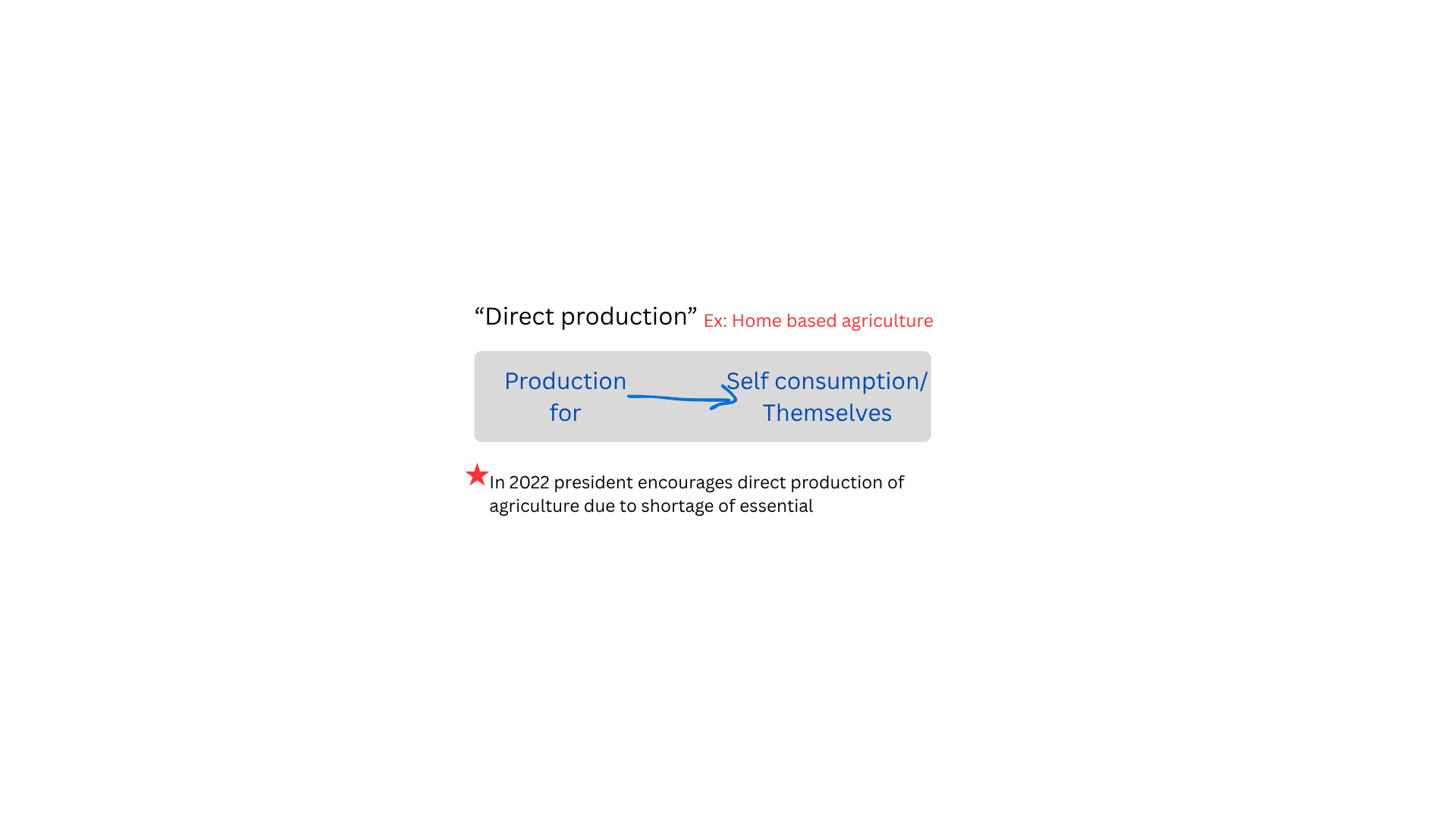
Specialaization
Individuals turn out to be experts that directly lead to specialize production/ excess pro
Sectors that specialization can be seen
Individual specialization
Jobs specializaton
Organizational specialization
Regional specialization (Like Galle is specialized in tourism and stuff)
National specializaion (Ceylon tea, Coconut)
BARTAR SYSTEM
BARTAR SYSTEM is a medium in which goods or services are directly exchanged for other goods and/ or services, without the use of money.
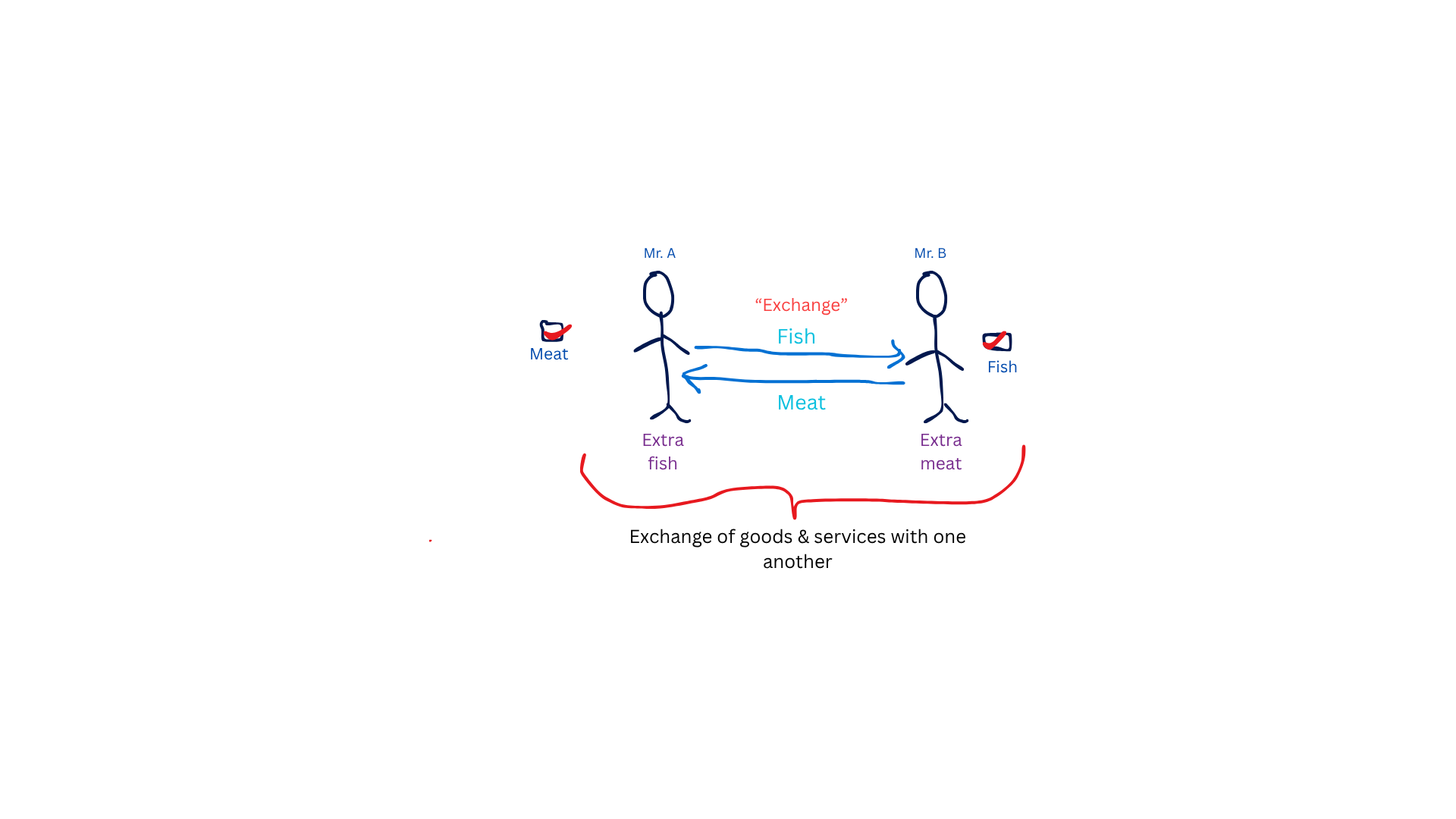
Emerged with bartar system (HIGHLY TESTED)
Trade and indirect production emerged with bartar system
Failure of bartar system
Lack of double co incedence of wants
-The needs & wants of a particular individual didn’t always match with another
Perishability of commodities & difficulty in storing (leading to high wastage)
-If it was not exchanged it resulted in wastage
Difficulties in valuing the product
- Disputes among the people related to product’s valuation
Difficulty in dividing the product into small quantities
- Some products could not be split nor divided in to small quantities
✶ Lack of double co incidence of wants
✶ Storing (wastage)
✶ Valuation/ Valuing
✶ Dividing
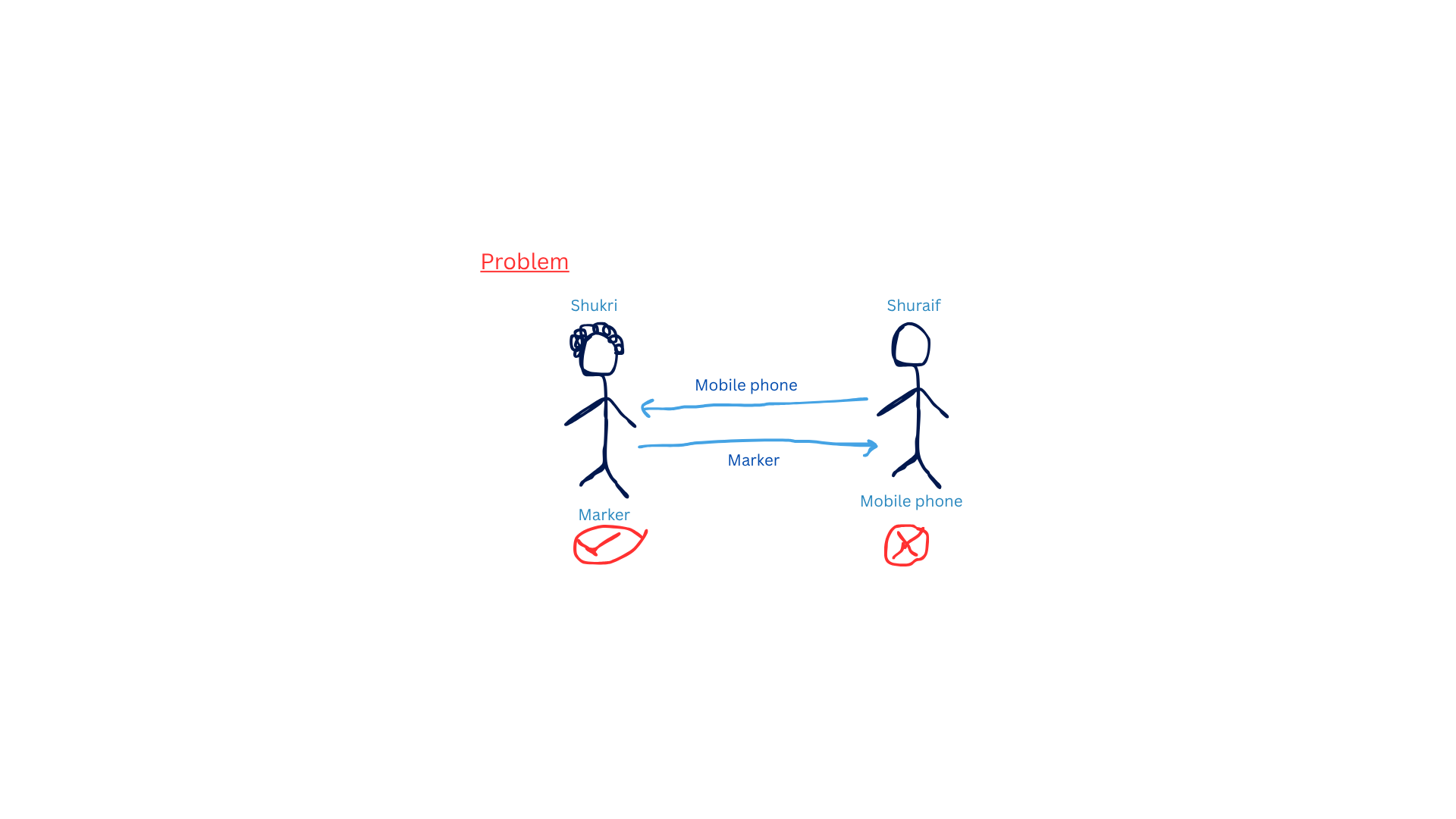
MONEY
✶ Solution to the problem BARTAR SYSTEM
✶ Anything that is commonly accepted
✶ As a medium of exchange/ Mean of payment
DEFINITION - Money is anything that is commonly accepted as a medium of exchange/ payment
Money as a SOLUTION
Problem : BARTAR system | Solution : Money |
1) Lack of double co incidence of wants | Medium of exchange |
2) Storing (wastage) | Store of value |
3) Valuation/ Valuing | Measure of value/ standard |
4) Dividing | Standard of different payment |
Explain
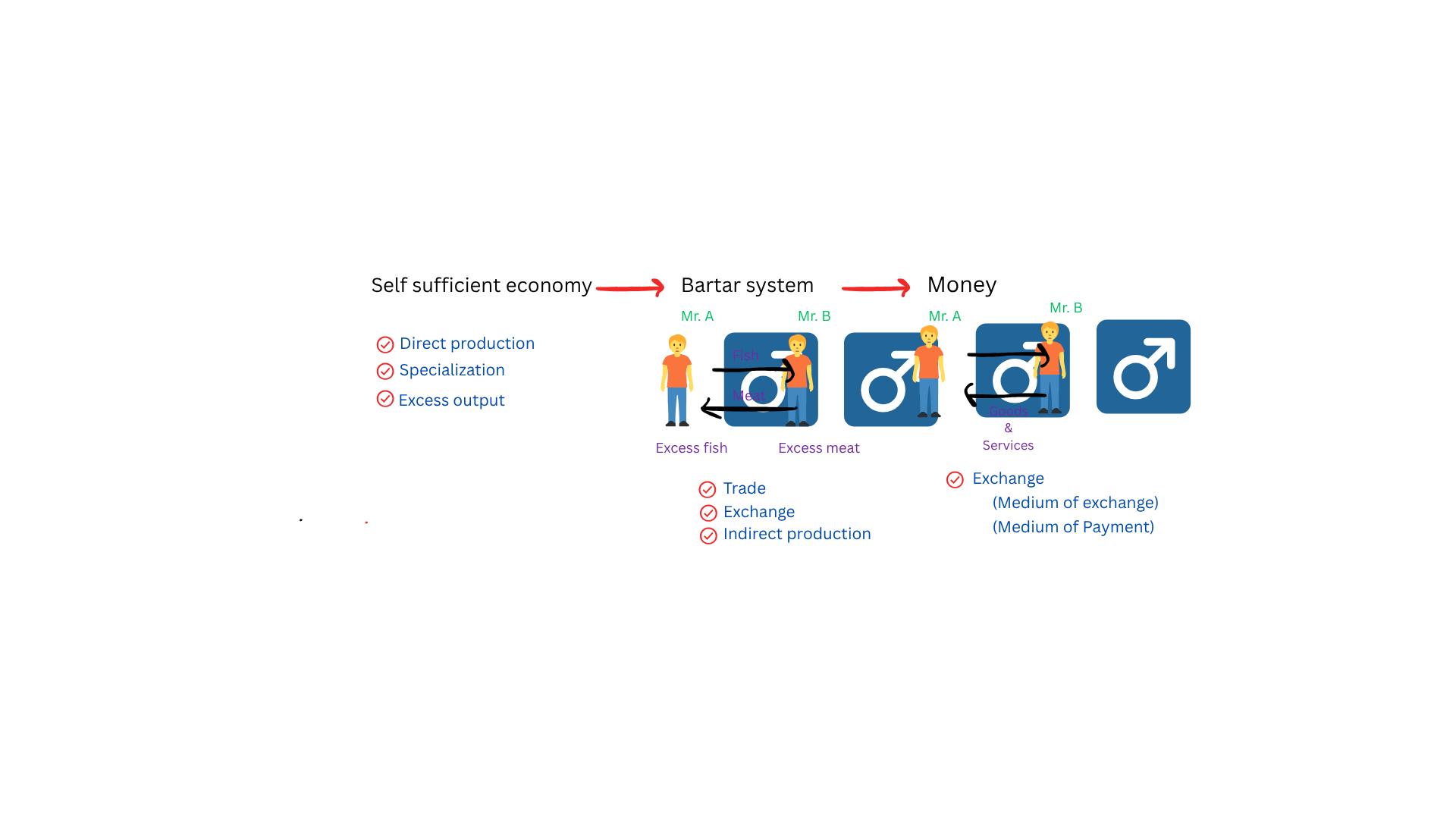
Characteristics of money
Acceptability
Portability
Durability
Uniformity ( Having a general recognition)
Easy identifiability
Difficulty in imitation
Evolution of money (different phases)
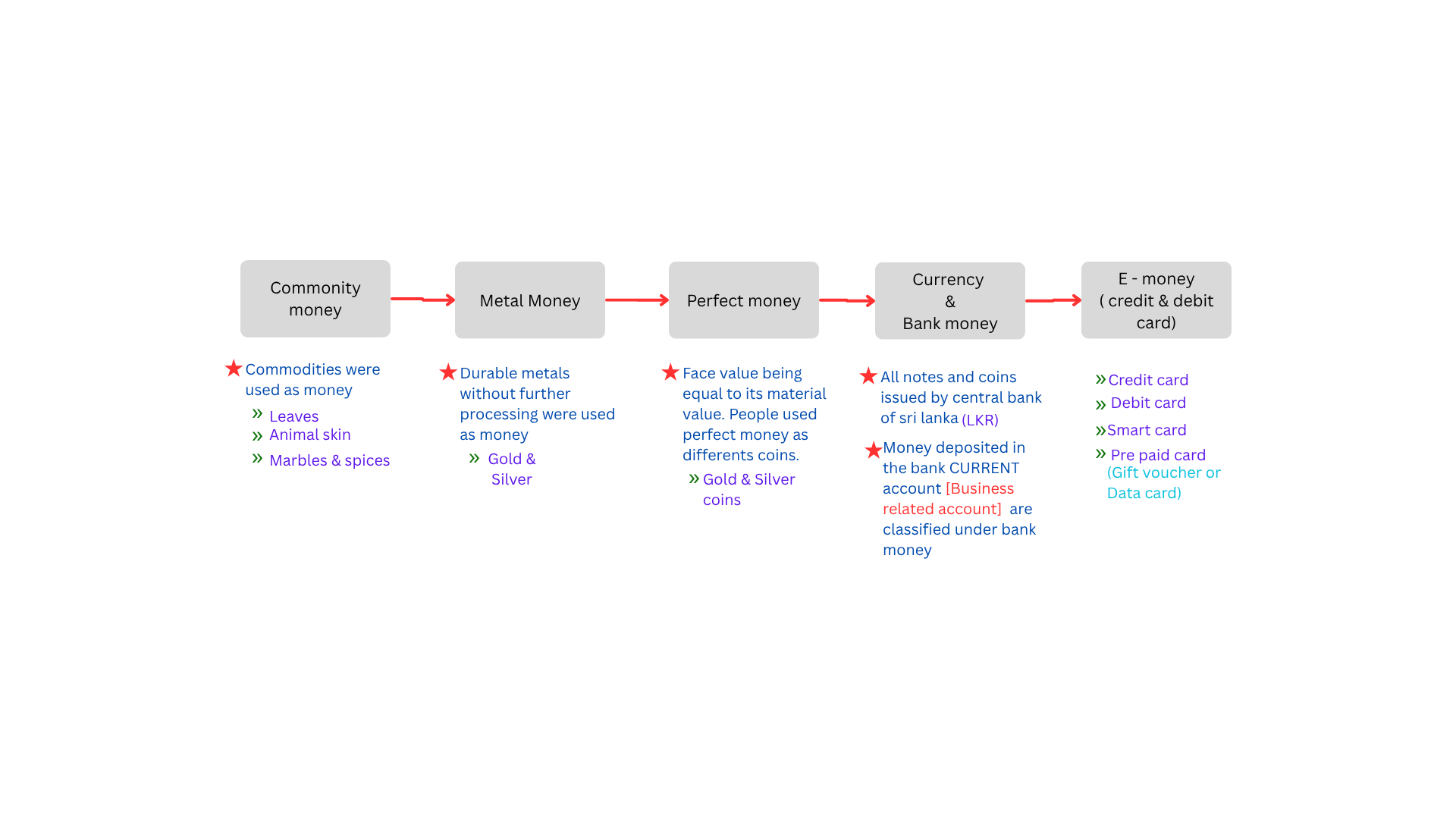
Changes occured in business due to industrial revolution
Changes in the PRODUCTION
Changes in the COMMERCE
Changes in the SOCIETY
Changes in production
Changes in the PRODUCTION (Small scale ➜ Large scale production)
Small scale businesses have been converted into large scale organizations
New machinery and technologies have been introduced
The output quantity and quality has also increased
New management techniques have been introduced & implemented
Division of labour and specialization has been implemented
Changes in commerce
Changes in COMMERCE (Trade & supporting services)
New businesses set up in the field of EXPORTS
New BANKS established
New business INSURANCE BUSINESSES have been established
Usage of MONEY became popular
Improvements in COMMUNICATION and TRANSPORTATION
Changes in the society
Changes in the SOCIETY (people & city)
Increse in migration rate to UK
Introduction of two new social groups known as “The Rich” & “The Poor”
Increase in LIVING STANDARD of people
Increase in ENVIRONMENT POLLUTION (due to large scale production)
Development of NEW CITIES (urban vs Rural)
Division of Labour
This is a process of separation of a work into numer of tasks,with each task performed by a separate person or group of persons
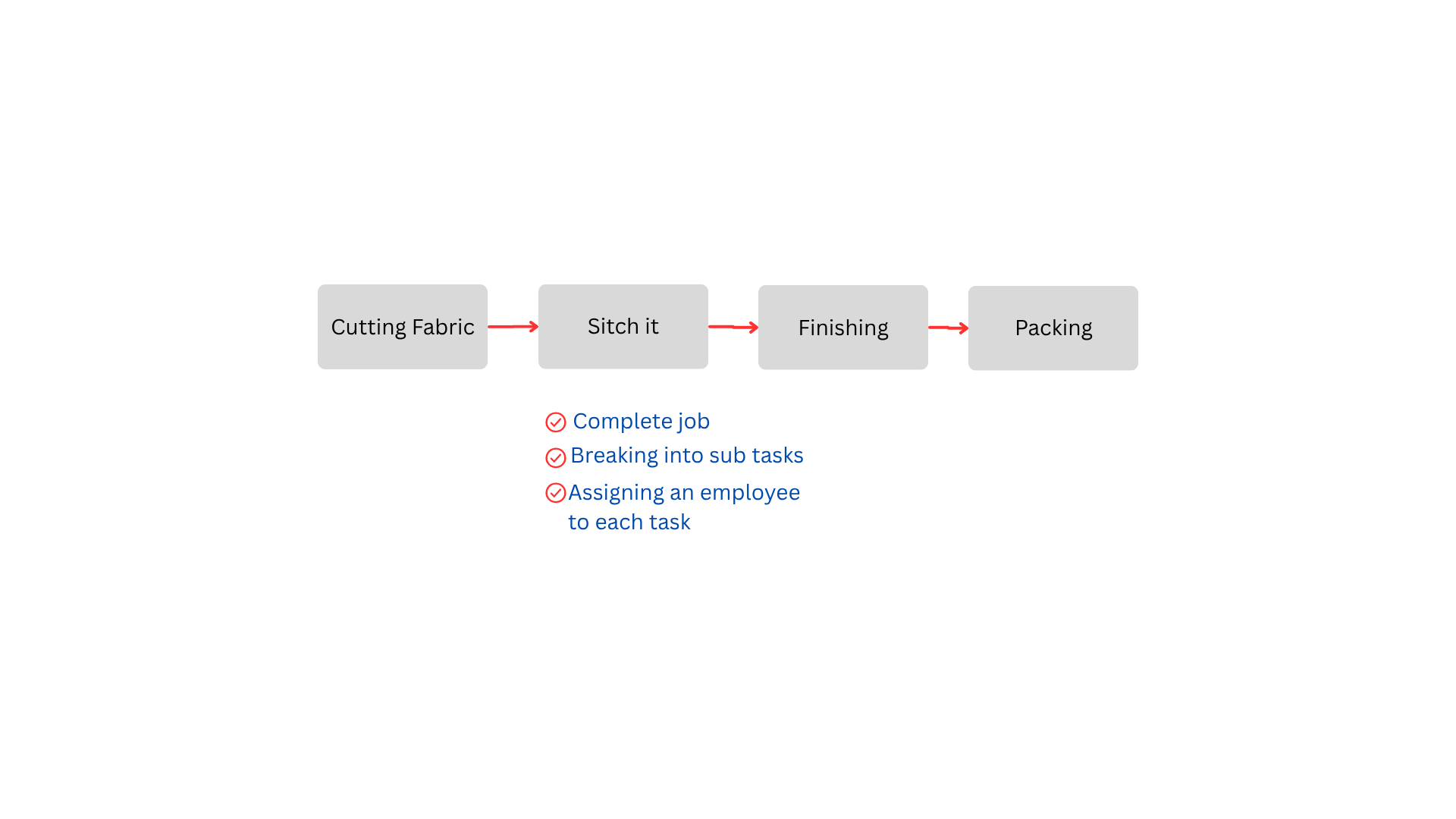
Advantages & disadvantages of division of labours
ADVANTAGES | DISADVANTAGES |
|
|
|
|
|
|
|
|
Explanation of all in brief